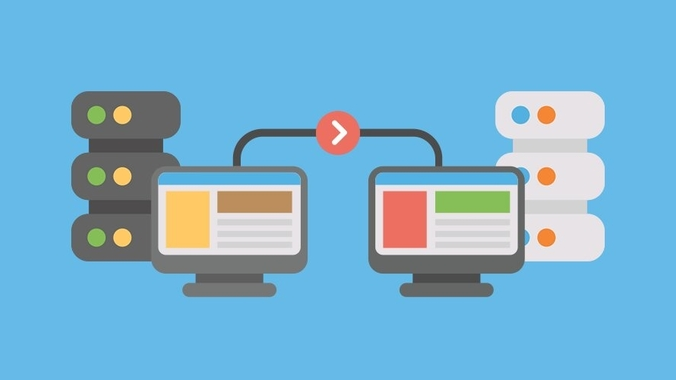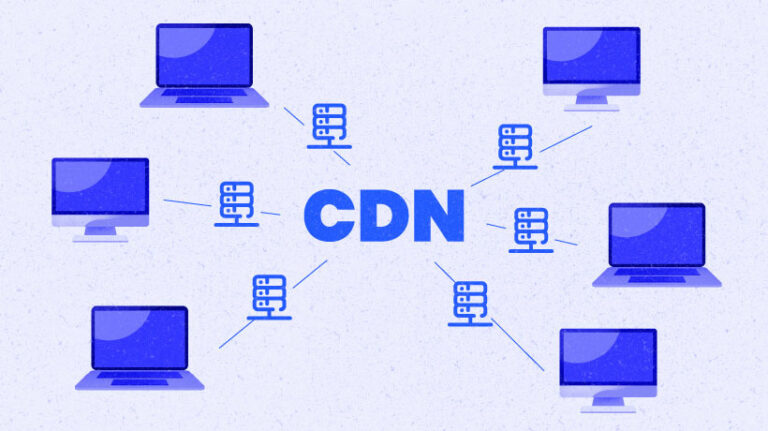Virtualization systems, their differences and advantages
Have you started work on your website? So you need to take care of a quality and stable server. An effective solution is to choose a virtual server.
Its essence is to divide the resources of a physical server into several virtual servers. A user who takes advantage of this service gets to have it at his/her disposal:
- Own IP addresses.
- Root access to the server.
- Routing tables.
- Basic rules of traffic filtering.
- Ability to install any necessary software and libraries.
- Independence from your server neighbors.
To date, the following virtualization options are used: VDS and VPS.
VPS
A virtual personal server is a service of a hosting provider that provides the client with an almost full-fledged server, minimally different from a standard (physical) one.
The user will have access to the OS of this server. He gets administrator rights, which will allow him to use the required software, adjust operating parameters, change and move files, change the conditions for using ports, etc.
The distinctive feature of such servers is the presence of their own IP address, firewalls, routing tablets, etc. In addition, the client has no ability to change the system critical files, as well as the OS kernel. This is due to the virtualization technology used, which forms independent copies on the PC, created on a single kernel. This feature of VPS servers provides an opportunity to minimize the consumed working resources and, accordingly, reduce the rental price.
Popular virtualization technologies include:
1) KVM virtualization
It provides safety and high performance. Supports all major operating systems, including Linux and Windows. This virtualization technology helps achieve the estimated business needs. KVM virtualization is a really good solution, representing a real value for functionality.
2) OpenVZ
(free technology, used by most providers), Virtuozzo (commercial version from Parallels corporation – more stable and easy to manage), VDSmanager (for those who need VPS with software virtualization on FreeBSD) – refer to the software type of virtualization, where virtualization occurs at the core operating system. Each machine looks like a separate server. An indisputable advantage is the speed of work. The cost of such VPS is lower than for full (hardware) virtualization. There is a risk of selling hosting in excess of the server resource.
3) Xen
(similar to KVM in functionality, grows into a cloud platform), Microsoft Hyper-V (excellent solution for virtualizing Windows servers, is actively promoted) – hardware virtualization, the so-called division of a powerful server to several weaker machines. The server is limited and isolated from others. The work of such servers – more stable, although the monthly budget will be higher.
VDS
A virtual dedicated server is a service based on the technique of absolute virtualization. It is based on a separate independent copy of the OS kernel. Thus, every customer can expect to get full access, as well as the ability to change it.
This architecture provides an opportunity to put on VDS-hosting different OS (for example, Windows). This is their advantage over VPS-servers. The latter work only with UNIX systems. In general, the capabilities of VPS and VDS are almost identical.
That is why these concepts are sometimes mixed and interchanged. Here much will depend on the selected provider.
Advantages of shared hosting
- Cost. This is the most important advantage for any business – small or medium-sized. Even an ordinary rental of a physical server is quite expensive. As for the purchase of a powerful and full-fledged machine, this pleasure will cost several thousand dollars. Thanks to virtualization technology, expensive equipment can be operated as efficiently as possible. What used to run on twenty old servers can now run on three modern servers.
- Server virtualization guarantees business continuity for any company. Thus, the possibility of downtime is minimized, for example, an important program Accounting 1:C or corporate mail. This is possible thanks to the clever architecture and virtualization technology. If you look at the standard scenario, when the only operating system on the server and the hardware fails, it takes quite a long time to restore the services.
- Server virtualization improves the security of a firm’s personal data. Previously, information could be stored scattered – on local disks of different servers, but now the architecture of the system provides for the possibility of centralized storage.
- Lack of responsibility for the operation of the equipment. It is no secret that any, even the highest quality equipment has a certain period of operation and is capable of obsolescence. Renting a virtual server allows you to forget about the aforementioned. By taking advantage of this service, all worries about the performance of the equipment fall on the shoulders of technical support.
- Flexibility of customization. If necessary, you can add the required resources to the selected virtual server. Additionally, it is possible to remove unnecessary options, which will save financial resources.
By choosing a virtual server, you can no longer worry about the normal operation of the equipment. It will always have the amount of resources it needs to function optimally.
Have a successful choice of shared hosting







